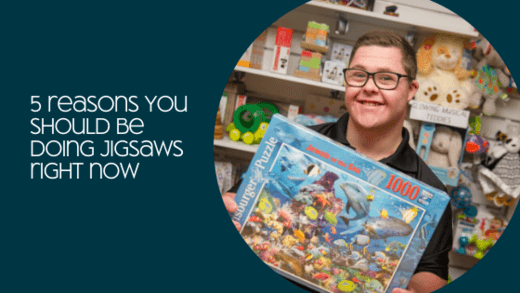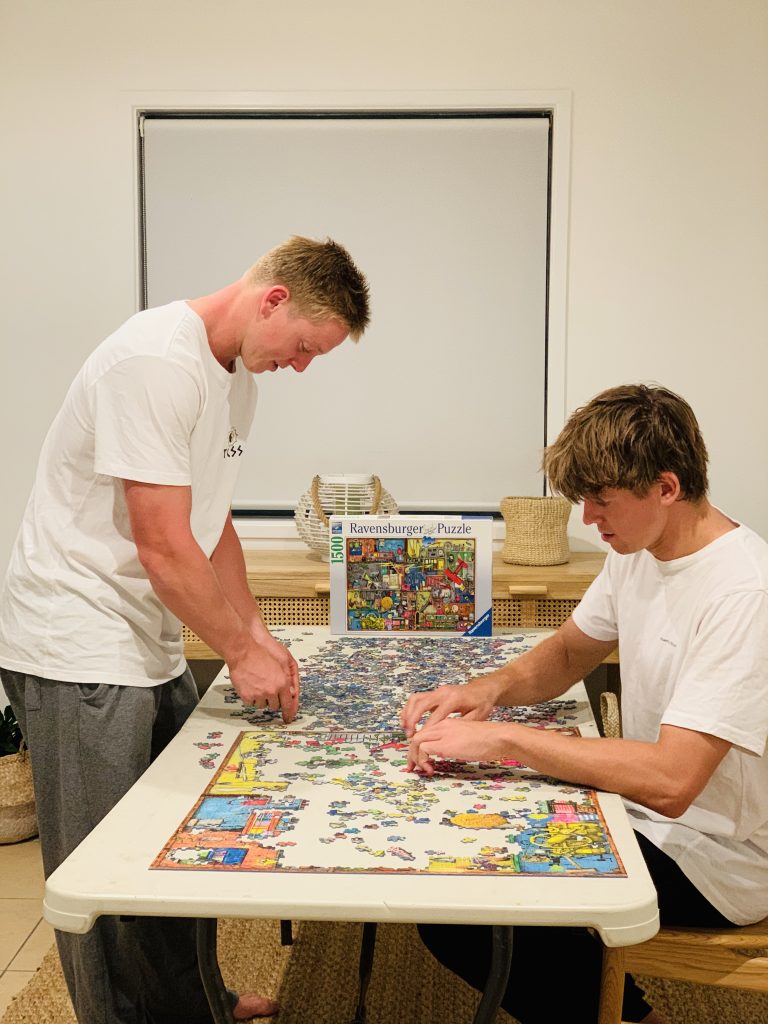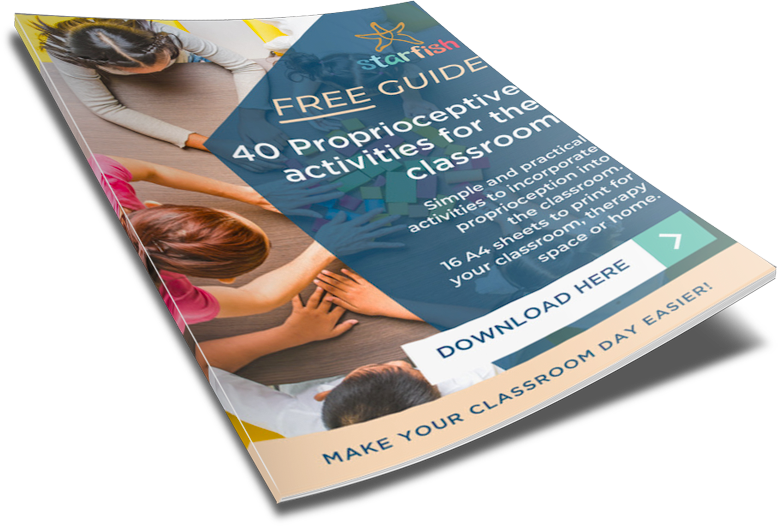Your Cart is Empty
Missed the shipping cut-off? Starfish Gift Cards are delivered instantly. → Shop Gift Cards
Missed the shipping cut-off? Starfish Gift Cards are delivered instantly. → Shop Gift Cards

We all love jigsaws. Most of us have being doing them since day dot. They have a fond place in our hearts but can you honestly remember the last time you got started on one for yourself, and not your kids? Well now's the time. And here's why....

According to medical experts, doing jigsaws is good for the health of your brain. It exercises your brain in a number of ways, helping to make you healthier and happier (sounds good to us!).
Interestingly, jigsaws haven been proven to exercise both the left AND right sides of your brain at once!
Your left brain is logical and works in a very linear way. Your right brain is creative and intuitive.
When you're doing jigsaw puzzles, both sides of your brain are engaged - your brain is getting a full work out!
This is a great article to help understand a little bit more about our brain function!
https://www.healthline.com/health/left-brain-vs-right-brain

Ever have those frustrating moments when you head upstairs to find something, then forget what it even was you were looking for? Us too!
Our memory is a precious tool for us all, especially our short term memory. It allows us to go about our daily lives.
Solving jigsaw puzzles helps reinforce existing connections between our brain cells, improving mental speed and thought processes.
Our short term memory helps us remember shapes and colours. This in turn allows us to visualize the 'bigger picture' when puzzling to figure out which pieces fit together.
Adults and kids both benefit from this type of brain stimulation. It is vital to combating diseases like Dementia and Alzheimer's or anyone who may be suffering brain damage as a result of injury. Not to mention helping us remember what we had for lunch yesterday...
A hot topic right now. Modern life is becoming increasingly stressful. The great thing is we are starting to recognise that and the result is some fantastic discoveries into varying forms of mediation as a stress reliever.
As we are introduced to a new world of isolation, overall mental well-being is as important as ever. Finding new tools and techniques to assist is vital for us all, and finding the right ones for each of us as an individual. No doubt different things will work for different people.
This is where jigsaw puzzles come into their own. They are like little (or large!) stress relieving heroes. Focusing on a task or image for a long period of time, without any additional thoughts entering your mind, is in itself meditation.
By doing a jigsaw puzzle, you are getting some of the same benefits as mediation - an often needed moment of peace.
Spacial intelligence, visual-spacial reasoning, spacial awareness. Whatever you call it, this is one of the most key skills we will ever learn in life: how to determine where you are in space and time.
That includes your own body parts. It also involves being able tell how far objects are from you and from each other.

When you do a jigsaw puzzle, you need to look at individual pieces and figure out where they'll fit in the bigger picture.
But what does visual- spacial reasoning help us with?
Here are some great examples...
Lastly, and most importantly to us, jigsaw puzzles are such fun to do with your family. Doing jigsaws together gives you quality time with your loved ones. They also put deposits in the precious memory bank.

Not only does this time involve valuable social interaction, bonding with those closest to us has been proven to boost a child academic performance and reduce behavioural problems.
You may find yourselves spending more time together than ever before during this isolation period, so why not turn it into something great! What a fantastic time to discover what we love doing together as families.
Get amongst the jigsaw hype and know deep down, that you are not just occupying yourself and family but giving everyone invaluable gifts on so many levels.
From all of us at team Starfish, stay safe.

Want to start doing jigsaw puzzles? Check out all our jigsaws HERE!

40 Proprioceptive activities for the classroom. Simple and practical activities to incorporate Proprioceptive into the classroom. 16 A4 sheets to print for your classroom, therapy space or home.